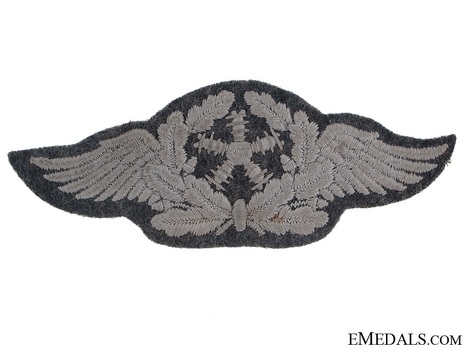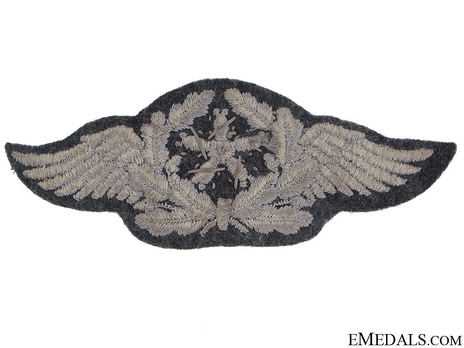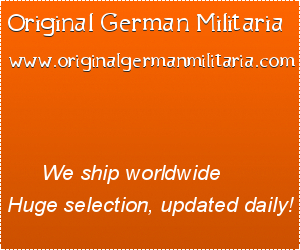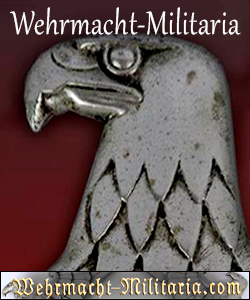Luftwaffe Flight Technical Personnel Insignia
SKU: 22.GOR.03.02.08.015
Estimated market value:


Estimated market value:
Attributes
History
The German Wehrmacht was composed of three main branches, the Heer (Army), the Kriegsmarine (Navy), and the Luftwaffe (Air Force). The Heer and Kriegsmarine uniforms were based upon the designs utilized by their predecessor organizations, the Reichsheer and the Kaiserliche Marine. Conversely, the Luftwaffe uniforms were based upon the uniforms worn in the sports and paramilitary organizations that were the forerunners of the Luftwaffe. The Luftwaffe uniforms were specifically designed to deviate from the designs of the other Wehrmacht service branches. It was also necessary that the uniforms differentiate between military and civilian pilots.
There were two main organizational precursors of the Luftwaffe, the German Air Sports Association (DLV or Deutscher Luftsportverband), and the National Air Raid Protection League (RLB or Reichsluftschutzbund).
The DLV and the RLB were created in 1933. These civilian organizations were used to secretly train members for future roles in the Luftwaffe. The DLV became obsolete after Hitler’s official introduction of the Luftwaffe in 1935, and it was disbanded and replaced by the National Socialist Flyers Corps (NSFK or Nationalsozialistisches Fliegerkorps) in 1937.
On May 27, 1935, an order was released that delineated the official forms of the Luftwaffe uniforms. This edict outlined the initial trade insignia that would be worn by Luftwaffe Enlisted Men and Non-Commissioned Officers. Additional insignia were added prior to the beginning of the Second World War, as well as at the very beginning of the war. These trade insignia were worn above the cuff on the bottom left sleeve of the service tunic, the field tunic, and the flight tunic.
These insignia feature an emblem associated with the trade on the obverse field. The emblem is composed of silver-grey coloured cotton or rayon thread that was machine embroidered onto a grey/bluish-grey wool backing. The insignia tends to have a circular shape, but may also have an elongated horizontal appearance when spread wings are included in the emblem design. The insignia may feature additional yellow/gold or grey/silver twisted piping along the exterior edges. The piping colour is generally associated with an attribute specific to the wearer’s trade, such as a full year of status. The grey piping is usually associated with the rank of Non-Commissioned Officer, while the gold piping tends to indicate exceptional performance by the wearer.
There are rare versions of these insignia that were produced for Luftwaffe Officers. The Officer insignia are hand-embroidered in silver-coloured bullion wire on grey/bluish-grey backing.
The Flight Technical Personnel Insignia emblem features an airplane engine with 5 pistons surrounded by a wreath and with spread wings. After a year of service in their role, gold pipiing was added to the insignia's edges.


Comments
Sign in to comment and reply.


Scroll Top